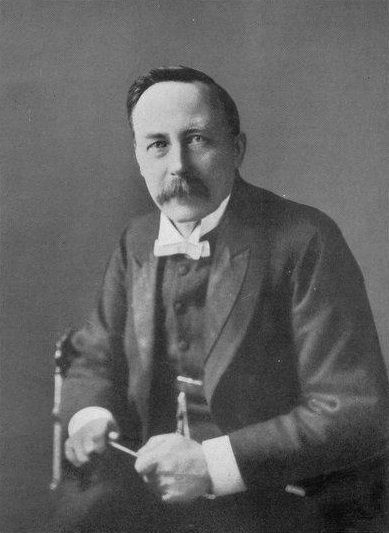By: Daniel Merritt, PhD, ThD | June 3, 2022
Theodicy Defined
While the word “theodicy” is not used in daily conversation, the question the word poses has been entertained by all rational persons at one time or another. What does the word theodicy mean? The word comes from two Greek terms: theos meaning “God,” and dike meaning “justice” or “justified or right.” Dale Moody informs, “The word was coined by G.W. Leibnitz in 1710 to explain why there is evil in a world created by and under the Providential care of a God both good and omnipotent” [1] Theodicy seeks to respond to questions of how a benevolent and omnipotent Creator can be true in the light of the existence of evil and suffering. Theodicy is the endeavor to justify and defend the reality of a good and powerful God amidst evil in the world.
Human Freedom and Theodicy
When God created man, He did so by giving man the ability to make choices. There is a risk that comes with such freedom, as one can make good or bad choices. There are consequences that come from good choices and consequences that come from bad ones. Unfortunately, bad choices bring consequences that can manifest evil and bring about suffering and pain. We often ask, “Why did not God stop that evil act?” If God intervened to stop the evil choices of man, then He would have to suspend man from being a free moral agent. If that happened, we would then ask, “Why does not God give me the freedom to choose?” We cannot have it both ways.
Being created with freedom to choose means man has the capacity to love and freedom is necessary for one to give and experience love. For love to exist that is not mechanical there must be a choice not to love. Love that is compelled or forced has no meaning. God wants us to freely love Him and in turn love others, but if one is compelled to love it is only a mechanical response that is devoid of emotion. One can program a computer to say, “I love you” but it does so without emotion because it had no choice to do otherwise. Such love is valueless. For genuine love to exist and be experienced there must be freedom of choice and that also means freedom to choose otherwise. Being created with the freedom to choose between loving and not loving, freedom to choose good or bad, there comes with such freedom the possibility of evil, suffering, pain and sorrow becoming a reality. And we know all too well the unfolding of evil’s reality in our individual lives and the world around us.
Peter Taylor Forsyth’s Take on Theodicy
In the face of all the evil we see and experience, developing an adequate Christian perspective on theodicy is the best and deepest way to strengthen one’s faith. Such a perspective must reconcile (justify) both the divine and human. When one seeks to develop a philosophical theodicy, one takes on a daunting task. Too often men have sought to develop a theodicy on rationality apart from a personal and relational perspective. Peter Taylor (P.T.) Forsyth (1848-1921), the articulate Scottish theologian, though unfortunately overlooked by most Bible students today, provides valuable insight into any discussion on theodicy. Most of his insights on theodicy are found in his masterful work, The Justification of God: Lectures for War-time on a Christian Theodicy (1917). While it is impossible to do justice to Forsyth’s understanding of theodicy in an article of this nature, an attempt will be made to summarize some of his salient thoughts.
While Forsyth lived in a day when liberal theology sought “to promote and crown human development” [2], the breakout of WWI was “a revelation of the awful and desperate nature of evil….War makes at least one contribution to human salvation — it is sin’s apocalypse. It reveals the greatness and the awfulness of evil.” In the face of such evil Forsyth found no answers in a “philosophical theodicy or vindication of God’s justice.” [4] Since, according to Forsyth, “no reason of man can justify God in a world full of evil, He must justify Himself, and he did so in the Cross of His Son.” [5] Forsyth, who has been called the “theologian of the cross,” sought to formulate a theodicy which found its culmination in the cross. It was in the Christ of the cross Forsyth taught the righteousness of God was revealed, who “is the theodicy of God and the justifier both of God and the ungodly.”[6] Forsyth writes, “In Christ, God is fully justified by Himself. If any man thinks he has anything to suffer in the flesh, God more. In all their afflictions He was more afflicted.” [7]
The Cross is at the Heart of Theodicy
Human wisdom cannot justify God for “no reason of man can justify God in a world like this. [God] must justify Himself, and He did so in the cross of His Son….[the cross being] God’s own theodicy” [8] How does God defend His love and goodness in the face of evil and suffering? Forsyth answers, “He does so through the cross; the supreme theodicy is atonement” [9] In the face of evil, pain, and suffering, the atoning work of Christ on the cross is God’s self-justification.
Forsyth contends that the only way one can reconcile God’s righteousness and goodness with the horrors of sin and suffering is to consciously place at the center of any theodicy the cross of Christ. It is in the cross where we find the supreme revelation of God. In the cross we don’t have to justify God, for in the cross God justifies Himself. In the cross “God shows Himself to be righteous and good in spite of the existence of evil in our world.” [10]
For Forsyth, the cross must be at the heart of any biblical approach to theodicy. A theodicy based solely on intellectual speculation that is devoid of a biblical foundation will prove futile and frustrating. For any theodicy to be biblical it must be centered in the cross of Christ. For it is at the cross we see God in Christ interacting with and becoming identified with man and suffers with him. God’s interactions with human sin and suffering culminate in the cross where the Creator took upon Himself the burden of and suffering with those He has created. He writes, “The tactics of providence cannot be traced,” [11] yet “[Christ] brings God’s providence to the bar of God’s own promise.” [12] In the cross, “His purpose we have, and His heart we have. We have Him.”[13] God’s theodicy is anchored in reconciliation wrought by Christ on the cross and a relationship with the crucified and risen Christ. Because of God’s suffering in and through the Christ of the cross, Forsyth’s theodicy called men to trust in the holy-love of God despite unanswered questions. All pain and suffering are “still in the hand and service of God” [14], and through the eye of faith one embraces a God of holy-love who in the Christ of the cross shares in the pain and suffering of humanity.
Milton Crum on Forsyth
Echoing Forsyth’s thoughts, Milton Crum writes, “Portraying God as fully in Christ portrays God as suffering all that Christ suffered on the cross, but it implies more than that. It implies that God suffered and has always suffered all that humanity suffers.” [15] Yet through it all Christ was victorious over the worst man sought to do to God’s best. Forsyth’s theodicy is “an extension of the doctrine of the atonement” whereby Christ was victorious. [16] Christ’s victory on the cross and in His resurrection is our assurance there will be realized in actuality what was secured at the Cross.
Of theodicies’ mystery, again, Forsyth writes, “[While] the tactics of Providence cannot be traced, but in the cross His purpose we have, and His heart we have. We have Him.” [17] Because we see God’s heart on the cross and the atoning victory won on Calvary, we embrace a theodicy that enables trust in God in spite of unanswered questions, which in His time will be answered and every wrong righted. While all mysteries of Providence cannot be answered, the cross of Christ is God’s answer to the problem of evil and human doubts that may surround God’s righteousness and goodness.
Karl Barth on the Victory of the Cross
 The pen of Karl Barth (1886-1968) was dipped in the same ink-well as Forsyth on theodicy, writing that “the unaided mind of man cannot devise a theodicy that establishes the idea of the goodness of God.” [18] Like Forsyth, Barth contended that what human theodicies could not do, on the cross God in Christ “gave Himself that He might bear and suffer what man himself had to suffer.” [19] In the cross Barth saw a twofold justification, as he interpreted the cross as both our justification and “the justification in which God justifies Himself.” [20] For Barth, Christ’s cross and resurrection affirm that evil, sin, and death have been overcome, and the ultimate victory over evil and suffering has been secured.
The pen of Karl Barth (1886-1968) was dipped in the same ink-well as Forsyth on theodicy, writing that “the unaided mind of man cannot devise a theodicy that establishes the idea of the goodness of God.” [18] Like Forsyth, Barth contended that what human theodicies could not do, on the cross God in Christ “gave Himself that He might bear and suffer what man himself had to suffer.” [19] In the cross Barth saw a twofold justification, as he interpreted the cross as both our justification and “the justification in which God justifies Himself.” [20] For Barth, Christ’s cross and resurrection affirm that evil, sin, and death have been overcome, and the ultimate victory over evil and suffering has been secured.
In the event of the cross, followed by the resurrection, humanity finds the solution to a proper theodicy whereby one gains confidence that God will act to right all wrongs and vindicate all undeserving victims of evil. One can be assured that God, through His self-justification in the Christ event (the cross), is moving all history towards His glorious goal which the victory on the cross foreshadows. [21] Forsyth writes, “The Christian message is that the answer is [the cross] and is the gift of God … The solution is practical, not philosophical. It is not really an answer to a riddle, but a victory in battle.” [22]
Conclusion
For Forsyth, Christ’s victory on the cross and in His resurrection is our assurance there will be realized in actuality what was secured at the Cross. The Christian with confidence can rest in the victory secured at the cross on behalf of humanity, and can take comfort in the truth that we serve a God who is not detached from our suffering but is touched with our hurts and sorrows. For when God in Christ clothed Himself in human flesh, He identified Himself with us, enabling Him to empathize with all human suffering as history marches toward its divinely ordained climax; the climax already secured because of the victory won on the atoning cross and in the resurrection.
According to Forsyth, the Christian can find assurance in the fact that “the final revelation of God is a redemption, and not a mere manifestation. It is something done and not just shown. And it is affected in man at the depth of his moral despair, and not at the height of his aesthetic pride and cultured insight.” [23] He insightfully adds, “God’s method with evil is not prevention but cure.” [24] And that cure is found in the atoning cross of Christ.
While some questions in this life will never be adequately answered, Christ’s victory on the cross and His resurrection assures us we are on the winning side…for Christ’s victory is our victory. O, what a Savior.
Blessings,
Dr. Dan
About the Author
 Dan Merritt is no stranger to Bellator Christi. He has been featured as a guest contributor on the website for many articles, including one of his biggest hits, “Voltaire’s Prediction: Truth or Myth,” before joining Bellator Christi as a regular contributor. Dr. Merritt received both a Ph.D. and a Th.D. and has studied theology, philosophy, and biblical studies at North-Western Theological Seminary, Southeastern Baptist Theological Seminary, and Campbell University. Dr. Merritt has published such books as Writings on the Ground and Dealing Effectively with Church Conflict. Merritt serves as the Director of Missions for the Surry Baptist Association after serving numerous churches in northwestern North Carolina. He also teaches and directs the Seminary Extension of the Southern Baptist Convention in the Mount Airy, NC area. In his spare time, Merritt serves as a track coach, training the next generation of runners.
Dan Merritt is no stranger to Bellator Christi. He has been featured as a guest contributor on the website for many articles, including one of his biggest hits, “Voltaire’s Prediction: Truth or Myth,” before joining Bellator Christi as a regular contributor. Dr. Merritt received both a Ph.D. and a Th.D. and has studied theology, philosophy, and biblical studies at North-Western Theological Seminary, Southeastern Baptist Theological Seminary, and Campbell University. Dr. Merritt has published such books as Writings on the Ground and Dealing Effectively with Church Conflict. Merritt serves as the Director of Missions for the Surry Baptist Association after serving numerous churches in northwestern North Carolina. He also teaches and directs the Seminary Extension of the Southern Baptist Convention in the Mount Airy, NC area. In his spare time, Merritt serves as a track coach, training the next generation of runners.
Notes
[1] Dale Moody, The Word of Truth, (Grand Rapids: Eerdmans, 1981), 153.
[2] P.T. Forsyth, The Justification of God: Lectures for War-time on a Christian Theodicy, (New York: Charles Scribner’s Sons, 1917), 25.
[3] Ibid., 28, 12.
[4] Ibid.
[5] Ibid.,122.
[6] Ibid., 169.
[7] Ibid., 130.
[8] Ibid., 14, 122.
[9] Ibid., 174.
[10] Ibid., 122.
[11] Ibid., 23.
[12] Ibid., 130.
[13] Ibid., 23.
[14] Ibid., 11.
[15] Milton Crum, Evil, Anger, and God, (Livermore, CA: WingSpan Press, 2008), 185.
[16] Forsyth, Justification, 174.
[17] Ibid., 23.
[18] Karl Barth, Church Dogmatics, (T & T Clark, 1957), III-1, 368.
[19] Barth, Church Dogmatics, II-2, 165.
[20] Barth, Church Dogmatics, IV-1, 564.
[21] Forsyth, Justification, 125.
[22] Ibid., 220.
[23] Ibid., 12.
[24] Ibid., 14.





